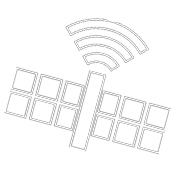- PostDoc position (Marie Curie) open
Applications are invited for a PostDoc position to work in the ITARS project, a Marie Curie Initial Training Network (ITN) within the FP7 programme. ITARS (Initial Training for Atmospheric Remote Sensing) focuses on the synergistic application of high-end ground-based remote-sensing instrumentation that has the potential to substantially contribute to an improved understanding of aerosols, clouds, and aerosol-cloud interaction processes and their role for both climate and weather. The 11 PhD and 4 PostDoc projects developed within this European network will focus on high-end ground-based remote-sensing instrumentation, synergistic observations and/or mathematical methods.
We will host ER5: Influence of long-range transported aerosols on air quality from in situ and remote sensing data.
We offer
- research and training in an exciting European network (see www.itars.net for details);
- 2 years of theoretical and practical (National Institute of R&D for Optoelectronics) training in active and pasive remote sensing;
- a highly competitive gross monthly allowance (approx. €3021/month, depending on family status - more than attractive for someone leaving in Romania);
- secondments to our academic (University of Catalunia, Spain) and industrial (Raymetrics, Greece) partners;
- excellent career-development opportunities.
We seek excellent candidates
- which may not have resided or carried out their main activity in Romania for more than 12 months in the last 3 years (short stays such as holidays are not taken into account);
- with an PhD or MSc degree in Physics, Engineering or Environmental science and in the first 5 years (full-time equivalent) of their research careers;
- having good computer programming skills and knowledge of English;
Short description of the PostDoc project (ER5)
The selected candidate will study the air-mass signatures from synergetic measurements (remote sensing and in situ) and backward trajectories, in order to identify and characterize the source region and modification processes of various aerosol types: mineral dust, biomass burning, continental pollution. Mixing of long-range transported aerosols in the local Planetary Boundary Layer (PBL) will be investigated. Remote sensing measurements will be done using a multiwavelength Raman and depolarization lidar and an AERONET sunphotometer. Measurements at ground will involve a C-ToF Aerosol Mass Spectrometer, a nephelometer and an Aerodynamic Particle Sizer. The fellow will operate the instruments (alignments, settings, check-ups, upgrades) and will be directly involved in data processing and analysis. Quantitative optical data will be submitted to EBAS in the frame of EARLINET-ACTRIS cooperation. The development of specific software tools for the use of neural networks in aerosol typing, as well as for the statistical analysis of aerosol optical properties during long-range transport in the free troposphere is foreseen. Data analysis will involve the use of HYSPLIT, OPAC, LIRIC and STRAT programmes, as well as microphysical inversion algorithms.
The fellow will be seconded to Raymetrics SA in order to learn about the design and optimization of the calibrated depolarization lidar which will be mainly used to discern between various spherical and non-spherical aerosols. Additionally, the Experienced Researcher will be seconded to Politechnica University of Catalunia to explore the performances of the Air Quality Modelling (AQM) in forecasting the distribution of pollutants over measurement areas (i.e. Romania), by comparison with measured data.
The job is available for 2 years at the National Institute of R&D for Optoelectronics, Magurele, Romania (http://environment.inoe.ro) and the salary will be commensurate with a Marie-Curie Experienced Researcher (ER) position.
How to apply
Applications for ITARS PhD positions will be received and processed in an homogeneous way for the entire network. Therefore, applications should be sent to jobs@itars.net, preferably as a single pdf-document. Please state “ITARS application” and the position number(s) (ER5) in the e-mail subject line. Candidates who wish to apply for more than one position should send a combined application, providing a ranking of their preference.
Your application should contain:
-
Cover letter outlining the motivation and qualification for the project position(s); more than one project can be named;
-
Curriculum vitae (CV);
-
List of publications (if available);
-
Copies of university degree(s) and school certificates;
-
Letters of reference (optional)
Application Deadline: Review of applications begins on 1st of March, 2013, and will continue until the positions are filled.
Interview Period: Candidates pre-selected (based on documents provided) will be invited for a short interview in April - May 2013
Starting of Work: from June 2013 onward
